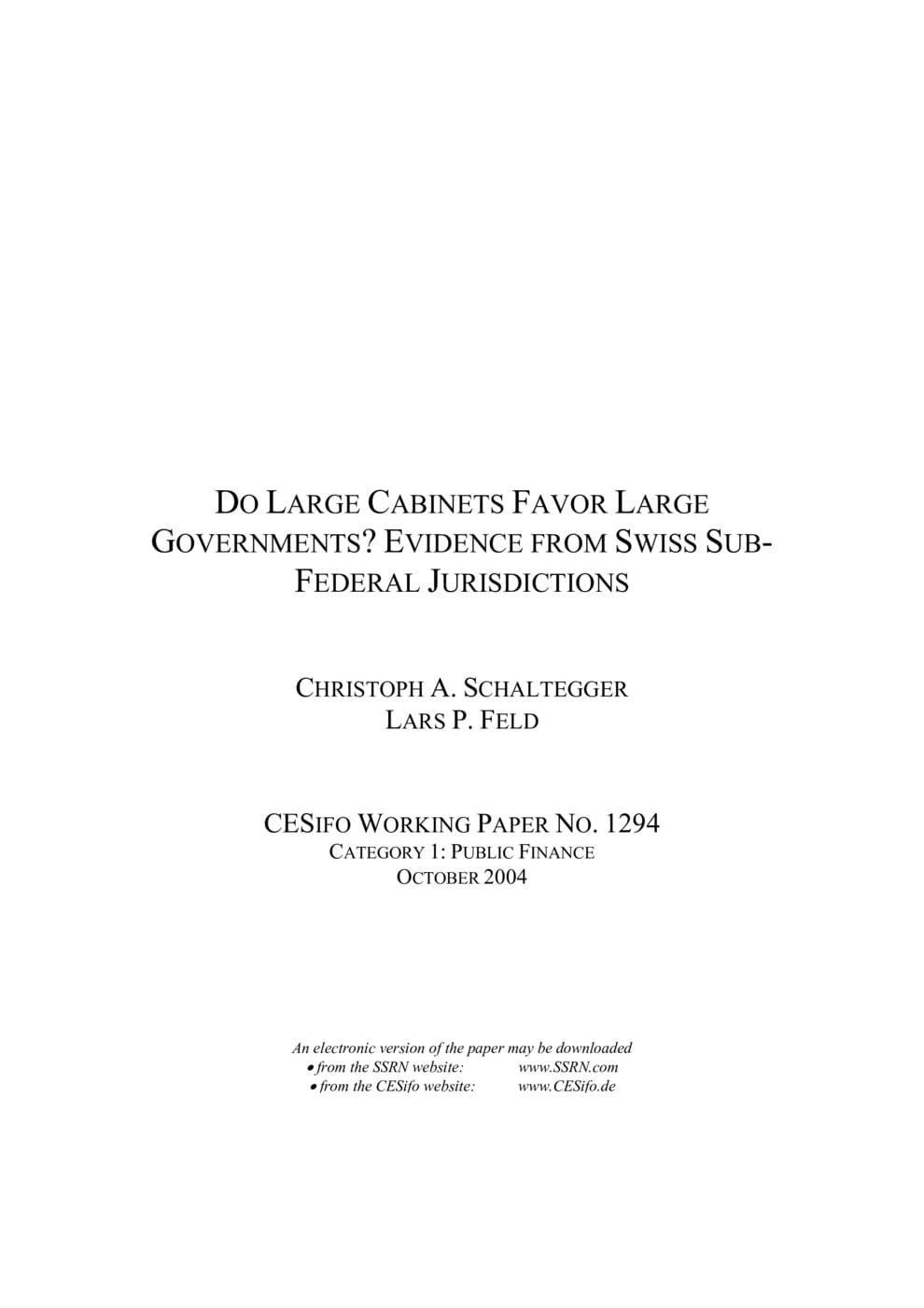Do Large Cabinets Favor Large Governments? Evidence from Swiss Sub-Federal Jurisdictions
CESifo, Munich, 2004
CESifo Working Paper No. 1294

The fiscal commons problem is one of the most prominent explanations of excessive spending and indebtedness in political economics. The more fragmented a government, the higher its spending, deficits and debt. In this paper we investigate to what extent this problem can be mitigated by different fiscal or constitutional institutions. We distinguish between two variants of fragmented governments: cabinet size and coalition size. Theoretically, they both describe the degree to which the costs of spending decisions are internalized by individual decision-makers. In addition, we evaluate whether constitutional rules for executive and legislation as well as budget rules shape the size of government and how the different rules interact with fragmentation in determining government size. The empirical study of the role of fragmented governments for fiscal policy outcomes is based on a panel of the 26 Swiss cantons over the 1980-1998 period. The results indicate that the number of ministers in the cabinet is negatively associated with fiscal discipline. Furthermore, the fiscal referendum does effectively restrict the fiscal commons problem, but less successfully than the budget rule.
Public Finance